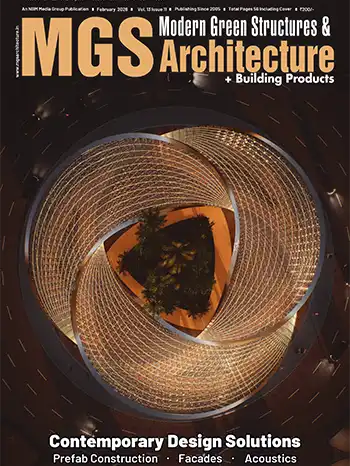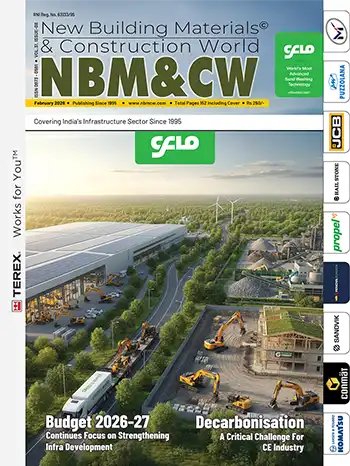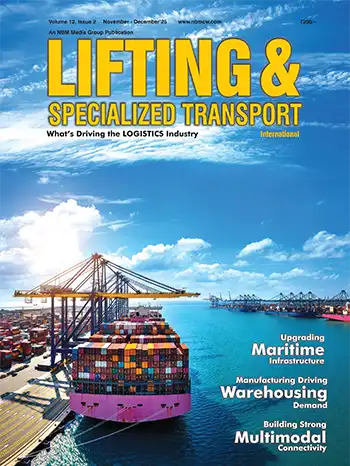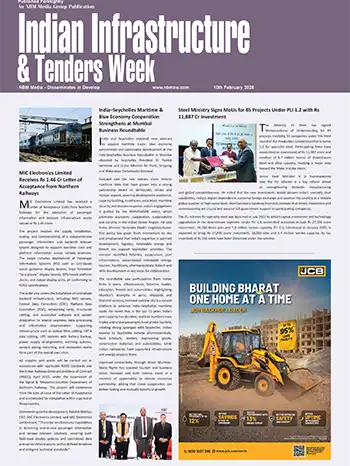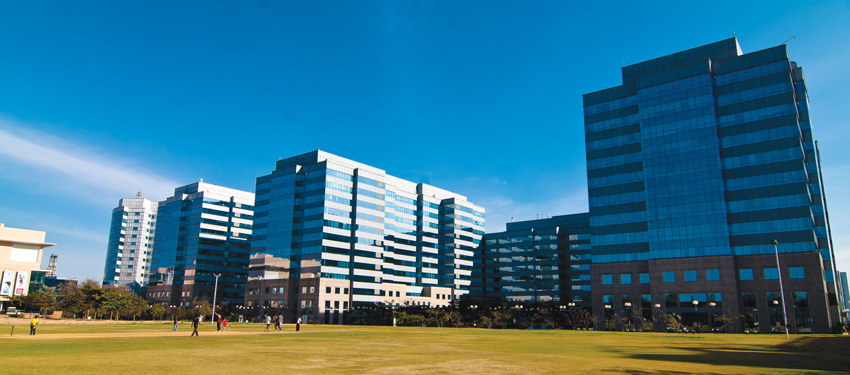
International Tech Park Bangalore by Ascendas
Implementation of smart building technologies is not limited only to curb the energy consumption, but also to help deliver improved comfort, greater safety, and better security to the occupants – finds out Syed E. Hasan
It has been widely acknowledged that India is in need of world-class infrastructure to provide the foundation for faster and sustained economic growth. And, if goal of smart cities is to be achieved, smart buildings should be looked at the core of the movement. Generally speaking, smart buildings deliver integrated lighting, improved comfort and air quality, greater physical security, and better sanitation at the lowest cost and with less environmental impact over a building's lifecycle. These buildings enable businesses and occupants to achieve better performance in terms of sustainability, productivity, and energy efficiency.
Going by definitions, smart building solutions include design, integration, and management of multiple systems under various vendors, contracts, and proprietary protocols. For all this, we do have giants like Siemens, Hitachi, UTC, Schneider, Honeywell, etc., all of which have the global expertise in facilitating smart buildings with specialists on specific subject matter suggesting ways to help India accelerate its transformation to a smart future.
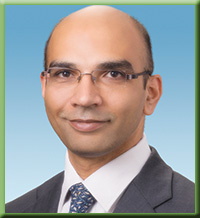
But the question that arises here is how the real estate companies are taking this call? It won't be wrong to mention that real estate is one of the most important components when it comes to urbanization. Rapidly increasing demand for housing across income segments has added to the responsibilities of the real estate developers. According to a recent market study, real estate in India is expected to rise from $14 billion to $102 billion over a decade from now. To make most of the available opportunity and cater to the rapidly changing needs, developers have to gear up to provide more efficient and high-class dwellings by incorporating smart building technologies.

So, why should a customer/building owner opt for the installation of these smart building technologies in his/her premises? To which Mr. Aman Nagar, Director at Paras Buildtech, notes, "Smart building technologies provide total building solutions that include comfort, energy-efficiency, safety as well as security in a nutshell for the consumers. Therefore, it doesn't matter much if incorporation of these technologies adds a little extra cost to the total cost of the project. Moreover, the invested amount gets recovered in a few years. It is, therefore, that the building owner should not hesitate in opting for the installation of these smart building technologies."
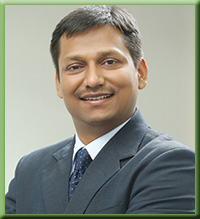
When it comes to saving by implementing these smart building technologies, Mr. Amit Maheshwari, Director - Marketing, UTC Building & Industrial Systems, believes that the most attractive efficient technology and design option cost the same or only slightly more than the conventional alternatives, but deliver significant energy cost saving. "Through our smart technology products, we have helped buildings reduce their water consumption by 27%, greenhouse gas emissions by 35%, 41% reduction in total industrial process waste, and 60% reduction in air emissions," he claims.

"If applied and operated properly, smart building technologies help maximize economic and environmental benefits," shares Mr. Arjunpreet Singh Sahni, Executive Director at Le Solitairian Group. He further adds that though the equipment seem a little costly at the time of installation, their economic benefits are felt in the long-run in the form of reduced energy consumption and in turn decreased electricity bills. "These are highly appealing to the building owners. Over the years, these technologies pay back significantly to the occupants and at one point of time they would find that their savings have increased manifold, while the high installation costs of the equipment become irrelevant for them."

Smart building technologies will have attractive payback if planned and installed at the initial stage of construction. "At Ascendas, we take a long term view of the real estate business. Developing energy-efficient business spaces with the use of modern smart technologies further strengthens our commitment towards enhancing building's performance to achieve sustainable development. It also adds value to the project to meet green norms," says Mr. Lee Fu Nyap, CEO of Ascendas India Operations.
Talking of today's dynamism, technology has touched every aspect of our daily lives. So what, if it also adds to the building's overall operating cost. There is a dire need for new-age intelligent infrastructure, which in effect, are the assets of the future, built through integrated technology innovation, delivering value-added, revenue generating services while streamlining the processes that create buildings and developments.
According to Mr. Singh, Honeywell Enterprise Buildings Integrator (EBI) integrates the existing (and future) HVAC control, life safety, and security systems to provide an efficient and consistent data source in an innovative way. This results in lower energy and operational costs, reduced risks, improved compliance, better productivity, and higher returns on investment. "Our state-of-the-art HVAC control systems help users to optimize energy through sensing, monitoring, and controlling mechanisms that allow organizations to employ strategies to cut energy usage and hence costs by as much as 15-20% without causing any degradation in comfort. The systems also help maintain ambient air quality for better health and hence productivity," he says adding that Honeywell helps customers maximize productivity and utilization and respond to the growing demands for solutions that reduce energy consumption and pollution in an environmentally and economically responsible way.
"Smart buildings have advanced, sustainable, and energy-efficient infrastructure to provide their occupants round-the-clock water, power, and effective waste management system. Information technology plays a key role in developing smart buildings," says Mr. Nyap adding that as a business space solutions provider, Ascendas has equipped its IT Parks with smart and energy-efficient features.
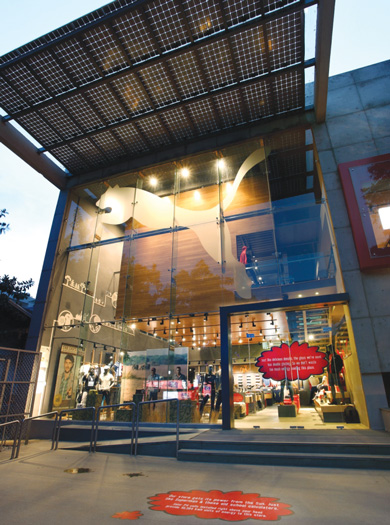
According to sources such as Energy Information Administration (EIA) 2006 and American Institute of Architects (AIA) 2006, buildings consume 50% of the total energy. But are these smart technologies limited only to the energy quotient of buildings or do these technologies help improve overall building performance that may include improved comfort, greater safety & security, reduction in the use of water like natural resources, etc. - all at an affordable cost besides enhancing environmental sustainability? Of the concerns mentioned, environmental sustainability has proven to be a major global attention seeker for corporations across the world, which are adopting standards and implementing initiatives to improve the environmental performance of the buildings.
Of course, smart building technology is not restricted only to energy-efficiency. There are numerous other benefits attached to it, which can be achieved simply by integrating various platforms. "At Honeywell, the power of integration can seamlessly combine the facility's various sub-systems on to a single portal for better operational and cost-efficiencies besides facilitating better communications and channel data. In turn, it allows the users to have better, faster, and more accurate information at finger tips," says Mr. Singh. According to him, Honeywell delivered some of the most complex and unique safety & security projects globally owing to its strong portfolio of project expertise on design, installation, measurement & verification, and service. "We have been recognized by leading bodies such as Frost & Sullivan and Security Today for our capabilities, leadership, and commitment," he asserts.
Implementation of technologies will help accommodate rapid urbanization. "When it comes to applying smart building technology, there exists an opportunity to drastically reduce energy use in buildings in the next 10-20 years. Energy efficiency in buildings saves money and creates jobs. The market for energy efficient technologies alone is valued at more than $1 trillion globally, and offers considerable opportunities for reducing greenhouse gas emissions. This is not the limit as the energy efficient buildings have other environmental benefits as well – water use reduction and natural resource conservations. All these factors aid to accommodate rapidly urbanizing population," says Mr. Maheshwari.
According to McKinsey & Co.'s India's Urban Awakening report, the number of million-person cities will grow from 42 to 68 by 2030. More people in urban areas means an increased demand for new buildings. And unless we change the incredibly inefficient nature of today's buildings, it means an unprecedented increase in energy use. No wonder why realty majors feel that the next generation buildings will have to meet the rapidly changing lifestyle and needs of the occupants by providing environmental benefits, and impact sustainability to owners and operators.
"The smart building technologies are useful for the developers in more than one way. In addition to energy efficiency of the buildings, they also increase productivity by providing comfortable environment for the users. Smart solutions also continue to improve the efficiency and effectiveness of the building," says Mr. Nyap. "Apart from energy savings, the smart building technology also helps in improving the economic, ecological, and the environmental balance by improving the overall building performance," says Mr. Nagar.

Honeywell’s integrated building management system empowers NSC Bose Kolkata International Airport to maintain safe and convenient facility while successfully accommodating over 7000 passengers per hour. Across the airport site –the airport’s electrical, mechanical, and safety systems are connected as part of the Honeywell Building Management Solution (BMS).
According to Mr. Sahni, around 8 to 10% annual savings on energy costs can be expected immediately after the deployment of the equipment related to smart building technology through regular monitoring of energy consumption. This helps the consumers in taking appropriate measures in order to keep a check. "With the passage of time the energy saving potential of the equipment gets improved. Moreover, these technologies also help in improving the safety and security of both the building and the occupants, beside temperature control, thus help enhance the overall building performance," he says.
Notably, these smart building technologies are not only meant for new constructions, but are also equally compatible to the existing buildings. "It is better if smart building technologies are planned right at the beginning during building's planning & construction phase as the equipment to be used for this purpose require proper placing and installation. However, these technologies are also compatible to be fitted in the existing buildings after some alteration in building design," says Mr. Nagar.
Elaborating it further, Mr. Nyap says, "There could be some operational challenges while installing the equipment in buildings which are already in use. For instance, customers using the space could face some inconveniences during the retrofitting process. Besides, there could be some compatibility issues in implementing smart technologies within the existing building systems."
"The smart buildings technologies at UTC are compatible with existing buildings too. We have a dedicated team of the experts on the subject matter who study & analyse the technology requirements of the buildings and help to execute the project to the desired efficiency requirements. When old buildings are retrofitted with new smart technologies, the building's overall operating costs come down by 9% over one year," says Mr. Maheshwari.
Mr. Sahni puts it the other way round, "No doubt that the incorporation of the smart building technologies in the existing structure/building format is not that easy, but still, the scope is always there for the energy-efficient equipment and system to be fitted in the existing buildings provided the retrofits developed are compatible and are made suitable for the existing spaces." He further adds, "Moreover, when it comes to starting a new project, the latest energy-efficient heating & cooling system, insulation system, etc., can be done rather easily by creating proper space for all these in the very beginning at the time of designing the structure."
All this together has added weight to the increasing role of specifiers. "Among the specifiers, architects are some of the earliest adopters of smart buildings, the design community remains more emotionally interested in smart buildings as compared to their peers, with 40% of architects pointing to 'doing the right thing' as driving future green building activities," says Mr. Maheshwari.
"The demand for smart building concept is catching up fast in India. Of course, the onus lies on both – the architects and the developers. They should endorse the use of smart and green concepts in designing and development stages of a new building," says Mr Nyap.
"Without support from architects and various other smart building technology consultants, proper installation of required equipment is not possible. And, therefore, if we say that they are the actual promoter of this concept then it won't be an overstatement. In fact, they are the ones, instrumental in encouraging this concept," says Mr. Nagar.
Adding to it, Mr. Sahni says, "Application of smart building technology requires practical approach to smart building engineering and design provided by the architects, and of course, consultants. This automatically makes their role highly important."
It's a well-known fact that cities have to be future-ready so as to accommodate an unprecedented migration projected on the back of rapid urbanization. It is also evident that soon after the Prime Minister's announcement of 100 smart cities, there began a buzz about making the buildings smart. And, after a year of this noble announcement, the change can easily be noted as it is not only the environmentalists but the real estate companies also feel that only smart buildings can make a city smart. The matter of the fact is that there are quite a few suppliers of these technologies of international repute, and have already proven their worth on global canvas. Let's see how the country's real estate companies are taking it forward by emulating things in smarter ways and are incorporating smart building technologies to make the modern buildings highly efficient.











